Love, language, and liberation: the story behind 'The Queer Arab Glossary'
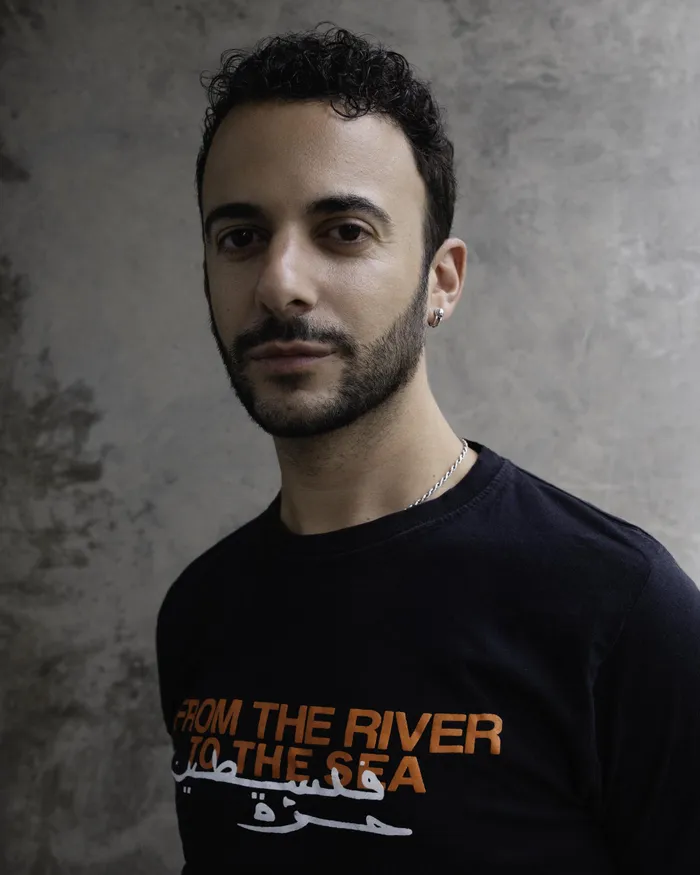
Author and designer Marwan Kaabour’s book draws on centuries of language, community stories, and pre-colonial texts to show that queerness has always existed in Arab cultures.
Image: Supplied
Marwan Kaabour refers to his book, The Queer Arab Glossary, as “a love letter” to his community. An impressive tome, the book contains the definitions of more than 300 slang Arabic words used to describe queer people (some affectionate; most, derogatory). It also includes essays and delightful illustrations which put a playful and affirming spin on some of the often offensive terms. In this interview with Carl Collison, Kaabour speaks, among other things, about the reasons behind tackling this ambitious project, the patriarchy inherent in language, and his active inclusion of a section of the global queer community so often “ignored”.
Carl Collison (CC): I found it telling - and kind of amusing - when I opened the Sudanese dialect section of the book and the very first entry was ‘Awlād Mīkī’ (“Mickey Mouse kids”), which basically alludes to the perception that queerness in Africa is as a result of ‘Western influence’. That it's a Western import. But then, you also have lots of entries which date back to pre-colonial days. There's the beautiful essay, A Rich Constellation of Identities, by Saqer AlMarri, where they write about a manuscript that dates back to the 1300s in which reference is made to what we would today call intersex people. And so there's a kind of contradiction, in a way, in how queerness is seen across the Arab world. What other contradictions or differences did you notice in your research?
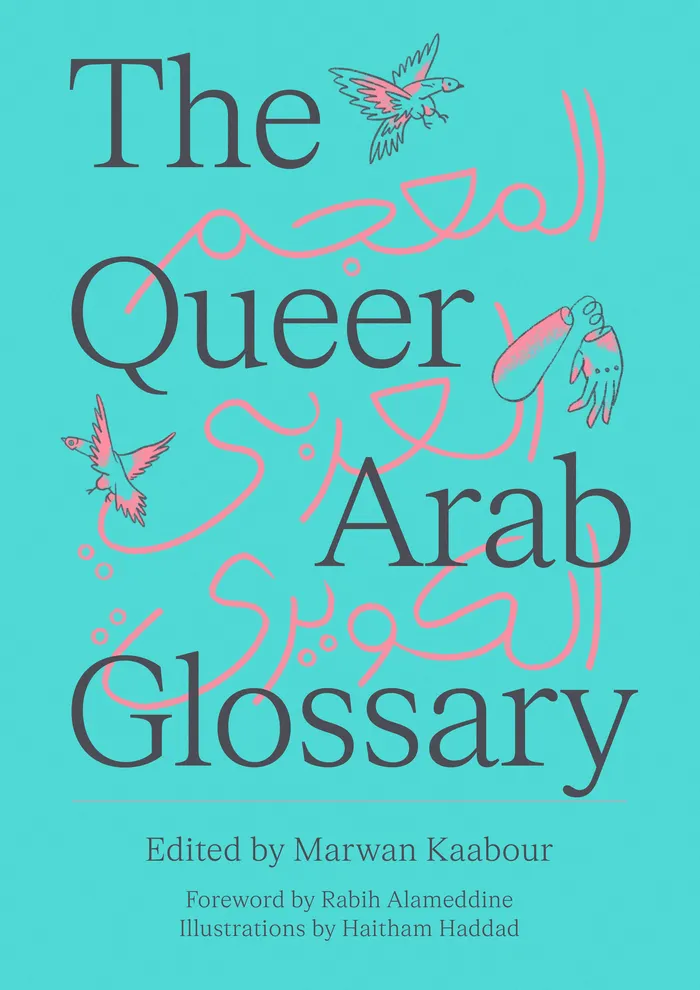
'The Queer Arab Glossary', a groundbreaking archive of queer Arabic slang and stories.
Image: Supplied
Marwan Kaabour (MK): I feel like if I need to talk about the book, I also just need to talk about Takweer, which is the project that gave birth to the book. Takweer is this platform that I created in 2019, out of frustration with these things that you touched on: the idea that we hear in our own… Arab context, queerness is a Western import. And the Western perspective that us Arabs are people who are born homophobic and sexist and backward and barbarians and all of that. So Takweer…and the book operates in the same way: it's simply us celebrating our own culture with queerness in mind. But it's also to debunk these myths that queerness is a Western import - or that we are incapable of embracing queer people. But the book is a survey of the linguistic landscape around queerness. And by survey, I mean everything. So it's not just the good words or the politically correct words, it's all of the words.
So, of course, there (are) going to be many, many contradictions when you look at this entire range. But it is correct to mention that if queerness is indeed a Western import, then how come Arab communities…have been talking about it and documenting it (for) as long as these communities have existed? You touched on Saqer Almarri’s essay that specifically dissects the root of the word ‘khuntha’ or ‘khanith’, which is the very old school, historic Islamic term to refer to someone who is, um, intersex or gender ambiguous or effeminate. The definitions really vary. So clearly, we've been there from the beginning. So obviously, queerness is not a Western import. The way we are dealing with it is what has changed over time.
And this is not to simplify things and say things used to be good, and now they're bad, because it's more complicated than that. It's just that before the colonial era, in general, queer people existed and were embraced in various ways. (They) also faced challenges, but they were embraced in different parts of the community.
And if you go through Takweer…you will see me every now and then bringing a new story that explains how people who we, (in) today's time, call ‘queer’, have existed in the past under different names and different definitions. And then the colonial era came to introduce Victorian codes of ethics, conservative morality - particularly by the British and the French - and laws to criminalise prostitution, homosexuality, sodomy, etc. And then, in the post-colonial era, we are still dealing with the consequences of these laws, to the degree that the Arab communities themselves believe that this is true; that what the colonists came and introduced to our culture is actually who we are.
So we've internalised the hate that was imposed on us…So, what this book tries to do, actually, is to challenge (this)...But it also, very importantly, presents a challenge to the mainstream queer discourse to say, it is not as singular as you're making out to be. We have different ways of expressing our queerness and our people have different ways of dealing with it.
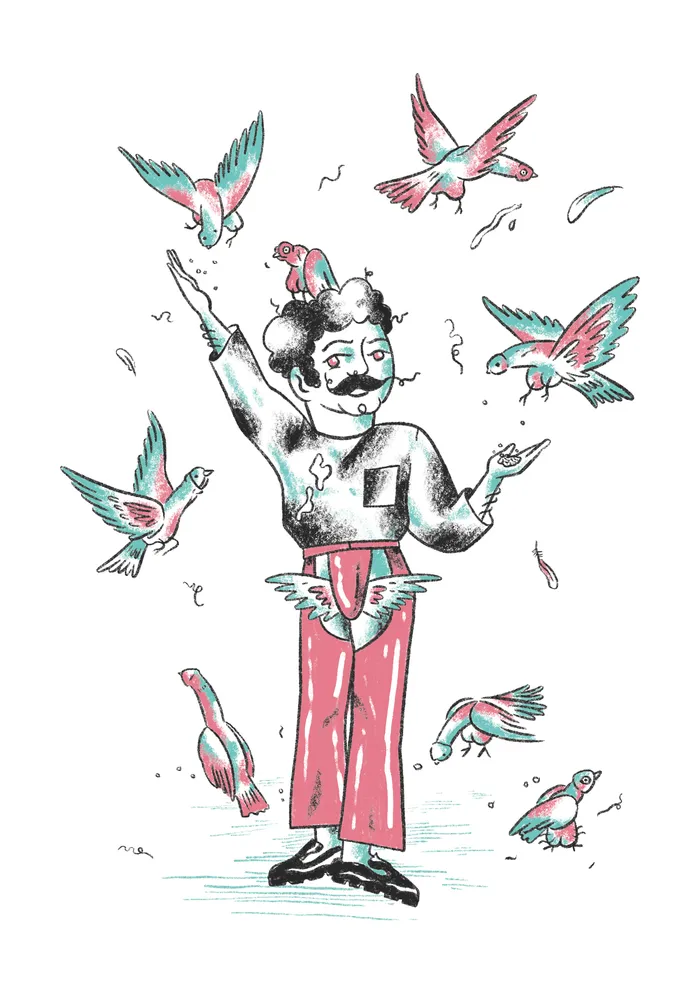
Through The Queer Arab Glossary, Kaabour invites readers to rethink language, embrace complexity, and see Arab queer identity in its full, historic depth.
Image: Supplied
CC: What we're seeing across the continent now is increased anti-queer rhetoric that is being supported and funded by conservative Christian players in the West. Have any Takweer followers or subscribers, or any other people who've contributed to the book, mentioned increased queerphobia based on Islamic religious beliefs?
MK: Yeah, it applies to both in the Arab world…I would say that in the last five years, there's been a rise in homophobic rhetoric and I think it's down to a few reasons. Because many of us have come up to the surface. We were operating in the underground, and there's safety and freedom in the underground. But, you know, there's also a desire to be included in general society. But when you poke your head above the surface, that also puts a target on you. So, it's almost expected and natural, unfortunately, that these attacks will begin, especially when you tie them to politics of visibility.
And the second part is the fact that the world is heading, very surely, towards right-wing fascism. And the kind of…homophobic or transphobic rhetoric that someone like Donald Trump might say in the US will trickle down and find its way into our own right-wing communities and (be) adopted by them…We don't exist in a vacuum. We are all connected in these ways.
My issue is not that I only have to battle my authorities to claim my rights, but I also have to deal with international politics that are standing in my way. Because now a right-wing politician in Lebanon is parroting anti-trans rhetoric that I'm seeing someone like JK Rowling spewing in Scotland.
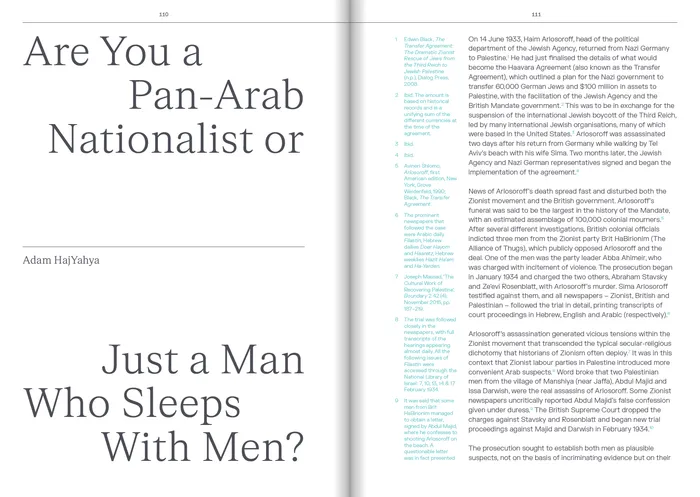
Illustrations in 'The Queer Arab Glossary' reclaim and reframe terms often used to shame queer Arabs, turning them into symbols of joy and resistance.
Image: Supplied
CC: I want to come back to your Takweer followers, but particularly those in African regions. What are some of the more noteworthy or what are some of the things that have stood out for you in terms of their comments? What are they feeling?
MK: It's difficult to answer because…I wouldn't say there's a difference in the way they interact with me, not at all. But (here is) a thirst and a demand to be included. I think the discourse is usually quite dominated by specific parts of the Arab community. So, what Arab African followers do is demand their space and demand…(pauses slightly)...rightfully demand that they are included in the narrative.
They want to be seen and not erased, yet again, because some people across the African continent also have this identity conflict. Am I Arab or am I African? I'm neither included in African discourse and the Arabs don't really…they ignore me.
So, I think there's a frustration out of erasure and a clear demand to be included. I think that to me is the main lesson that I've learned specifically from my African followers.
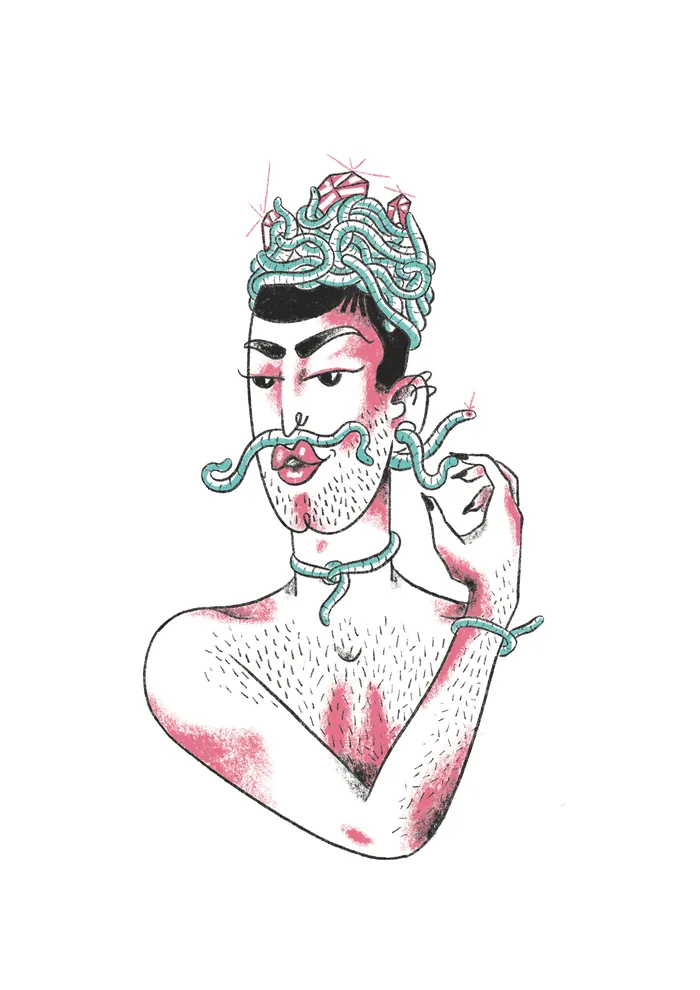
The glossary features over 300 terms, essays by queer Arab voices, and powerful visuals that challenge the idea of queerness as a ‘Western import’.
Image: Supplied
CC: What are your hopes for the book, and for Takweer and for the queer Arab community generally?
MK: For the book specifically, I said it on multiple occasions, but it's truly a love letter to my community, before it's serving as a weapon to debunk or to fight (with). It's an acknowledgement of…you know, when you sit with your queer friends and you share these stories and kinds of myths that you heard or this folk tale or these words, these jokes that we share between us, the joy that exists (in) the conversations that we have. This book and Takweer is an attempt to bring that joy to the entirety of the community.
So, I would like for this book to be a source of joy and provide someone with a sense of belonging and safety that we have existed in history, that we continue to exist…We don't have easily accessible reference books to refer to as queer people. You have academic papers or you have gossip magazines…but there's no in-between… (a) book that you can read and enjoy and just feel…reflected in. So, I hope this book is…one of hopefully many references that could start to tell our story. I think that's the first thing.
The second thing is I would like it to be a challenge to mainstream queer discourse that is attempting to unify and present a very singular understanding of what it is to be queer. I want to break that down and complicate it.
And then, on a more personal note…I keep saying the book is the first realised project to come out of Takweer. Because what I'm planning on doing is to follow it up with projects…of different types of media that try to continue to tell the story, whether it's a documentary or an exhibition or another book. There's a wealth of knowledge that has been relegated to footnotes. I would like to bring it into the main body.
- The Queer Arab Glossary is published by Saqi Books.
- Originally published on Beyond the Margins, a platform that showcases underrepresented voices and perspectives through art, writing, and storytelling.
Related Topics: